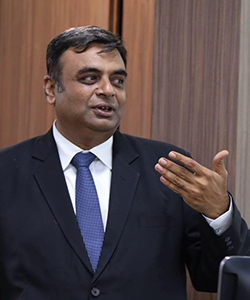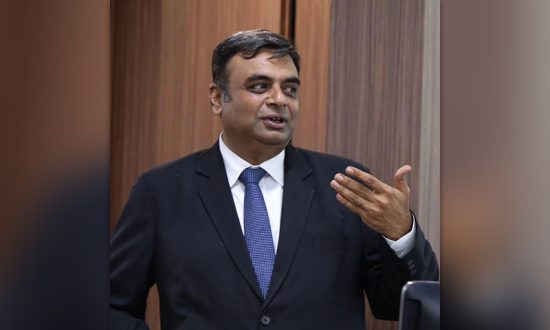Dr Rhishikesh Dave completed his LL.M with specialisation in Human Rights and International Humanitarian Laws securing 2nd rank in the University. His doctoral research (PhD) was on the subject of the concept of Sovereign Immunity and International Criminal Law. He was awarded Doctoral Scholarship by The Hague Academy of International Law. He has vast academic and administrative experience.
The National Education Policy 2020 broaches some significant changes for the entire spectrum of Higher Education in India, and legal education will also not be an exception. The discourse on this subject has become an important one as NEP will change legal education in ways more than one and the institutions imparting legal education will have to make substantial changes in the way it is offered. A major role has to be played by Bar Council of India in incorporating the changes envisaged in NEP to the legal education in India.
Legal education in India is primarily imparted by 3 kinds of institutions,
- National Law Universities
- State and Central Universities
- Private Universities
They offer either a 3-year law program or a 5-year integrated law program. This variegated approach of offering combined degrees will be fraught with serious challenges in light of the implementation of the NEP by all these three types of institutions.
NEP stipulates that no professional education institutions will be standalone institutions and has to be converted to multidisciplinary institutions. All national law universities will countenance a major problem in implementing this specific norm, as most of them are highly specialised with limited infrastructure and resources. Most of them are provided with initial grants by state governments, and simultaneously they are also working on self-financed models to sustain themselves. This move would necessitate that the respective state governments provide support to these institutions financially and help them procure the necessary facilities to become multidisciplinary universities.
Another challenge that will be faced by all institutions imparting legal education is to provide multiple exit options. As of now, individuals who have completed their law degree can only practice the legal profession after recognition by the Bar Council of India. However, now those who exit after one year or two years, either after getting their certificate or diploma will find no career options suitable for their qualification. Further, the concern is that in a 3-year law program, the subjects that are taught are only law subjects. Still, when it comes to a 5-year law program, in the first 2 years, most of the subjects that are taught are non-law subjects, so in this case, it begs the question how can a student be provided with a certificate or diploma in law after studying for just two years in such a course? Here, the major issue encountered will be the arduous task of restructuring the subjects taught to facilitate multiple exit options. Further, most of the law subjects are interconnected and interrelated, giving exit options will lead to a situation where it might attenuate the complete understanding of a subject.
The NEP has caused a profusion of such questions, and the above paragraphs adumbrate only a few of them. From my perspective, even though there will be undeniable challenges in its implementation in letter and spirit, NEP is a wonderful policy and will definitely bring a positive impact on the entire education scenario of India.
More About Dr Rhishikesh Dave

Dr Rhishikesh Dave’s areas of interest are Human Rights, International Humanitarian Laws, Conflict of Laws, Criminal Law and Law of Evidence, His academic career spanning more than a decade has seen him working as Assistant Professor at Gujarat National Law University and later on Registrar of the same University.
Before joining Marwadi University, Dr Dave served as Dean, NMIMS University School of Law and before that as Dean, School of Law at Galgotias University. He was also Area Head, Criminal Law Department of Law and Academic Coordinator at Institute of Law, Nirma University for 3 years. He has organised various Moot Court Competitions, Workshops, Conferences, Seminars etc. He was also the Faculty Advisor, Centre of International Humanitarian Law Studies, ILNU. He has conducted various workshops with National and International Agencies and has also been judging Moot Court Competitions; Inter American Human Rights Moot Court Competition, Hong Kong Red Cross Moot Court Competition, to name a few. He has lots of National and International publications to his credit. Recently he was awarded Academic Excellence Award in Legal Desire Summit & Awards 2018. Dr Dave has joined Marwadi University with a mission to provide a world-class Law School in the Saurashtra Region.




